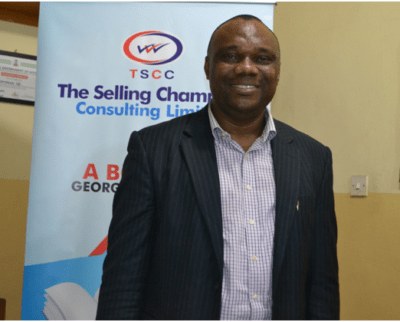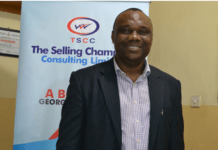
“If you can’t describe what you are doing as a process, you don’t know what you are doing.” – W. Edwards Deming
Every endeavour follows a process. It takes process to achieve a goal. As we already know the importance of salesmanship and selling to business, it is vital that we discuss sales process as well.
Before we continue, it is imperative to note that there are inbound and outbound sales. At the most basic stage, the difference between the two sales is in who initiates the sales relationship. Inbound sales processes get started by the prospect, while outbound sales are started by the sales representative. It is important to note this distinction before we proceed in the discussion.
The focus of the sales process we will explore here is outbound sales which is a branch of business-to-business sales. It refers to the process of a seller, usually a sales rep of a company, initiating engagement with a prospect or prospective buyer through sales activities, such as cold calling, email prospecting, social selling and networking.
Understanding and applying sales process is what makes a sales professional. The teaching I will explore here is ideal for sales professionals, entrepreneurs, start-ups and professionals who want to create value with their products and services.
Components of the sales process
Reach out to the right market
This is the art of prospecting and the first stage in the sequence. You need to reach out for the sales. You need to make the sales to happen. Selling is about being strategic. You need to prospect and identify where the buyers are. It is not every market that is made for your products or services. You must discover your own market. You must sell the right product; you must sell the right way; and you must sell in the right market. I believe that if you sell the right product in the wrong market, it will fail. If you sell the wrong product in the right product, it will fail.
As a businessperson, start-up or sales professional, you must identify the right market for your product. The right market means that you go to the market buyers and prospects that will need your products and services. You must take time to identify this market. You need to know who buys, what they buy, where they buy, when they buy, why they buy, and how they buy. I call these The Five Ws and One H of Selling. This is how to sell productively.
Selling is strategic and intentional. It is strategic because you must plan how to achieve your goals, and intentional because you must design and go out to achieve what you designed.
Qualify your prospects to ensure you are talking to the right people
Identifying the right market is the first task for the business. This task is done before coming out with the products because you need to know the market your product is meant for. You don’t just manufacture; you produce for a market. When you have done this, the next assignment is to ensure that the prospect you are selling to in the market is the right prospect. The right prospect is identified by deploying questioning and listening skills. The salesperson asks the prospects questions skilfully to know if he needs the products, and if he can pay for the products.
Sales conclude when payment is made. If payment for products bought is not made, then sales didn’t happen. What happened is dumping, and dumping isn’t selling! So, qualifying the prospect is necessary to ensure that the business is dealing with the right person or market.
Develop a cordial relationship with your target audience
In selling, relationship is everything. This is true for business as well. People ‘‘buy’’ people. People buy from people they like and trust. When people like you because of the way you treat them, they will buy from you. When people know that they can trust you and your product, they will buy from you.
The more you develop cordial relationships with your customers and prospects, the more you sell. I deployed relationship strategy when I was in the field as a salesman. I invested time in building viable business relationships. The quality relationships I developed in the right places helped me to succeed in my days as a field salesman.
I agree with Brian Tracy when he said, ‘‘21st century selling is relationship selling.’’ The healthy professional relationships you built as a salesperson help you at tough times. People may decide to buy from a salesperson because of the person selling the product and not necessarily because of any other reason. I have seen this happen on several occasions. It is ideal to build quality and cordial relationships; it is ideal to sell value all the time. This is the way to succeed in the field of sales.








